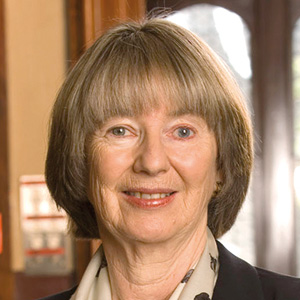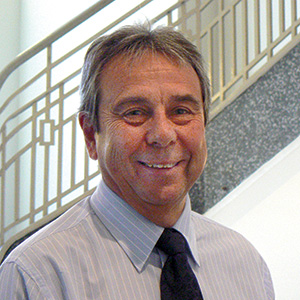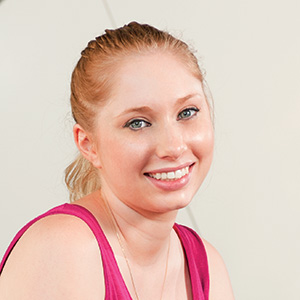Seeking out a new future, far removed from existing, rigid class boundaries that limited opportunities for many in the United Kingdom, the first South Australian settlers were brimming with ideas about how to create a fairer society.
As the cornerstone of a new culture and identity for the State, education became a means of transcending class and achieving a better quality of life.
 According to historian and UniSA Emeritus Professor Alison Mackinnon, the settlers had high hopes and big ideas.
According to historian and UniSA Emeritus Professor Alison Mackinnon, the settlers had high hopes and big ideas.
“There was the hope from early on that it would be a different society, as is clear from Edward Gibbon Wakefield’s plan to establish the correct balance between capital and labour, a more equal society,” Prof Mackinnon says.
“There certainly was a hope that life would be different, and education was important in that regard.”
The settlers’ desire to build a fair and equitable society laid a firm foundation from which the University of South Australia’s modern commitment to accessible education emerged.
In 1991, the University made equity a key element of its founding Act, specifically referencing groups considered to suffer disadvantage in education as community members to which its educational programs should be targeted. Since then, the University’s activity in the equity arena has gone from strength to strength.
Providing accessible education meant that UniSA quickly established initiatives to create new opportunities, such as campuses in regional areas, and free bridging courses for adult entrants lacking the traditional prerequisites for university entry, beginning in 2006.
The opening of UniSA College followed in 2011 with three goals: to deliver the University’s fee-free Foundation Studies program, establish diploma programs and undertake outreach activities aimed at students who, for a variety of reasons, have not pursued higher education.
Prof Mackinnon points out that in its 25 years of existence, UniSA has never forgotten its ambition to provide accessible education to all.
“UniSA hasn’t forgotten its origins and has endeavoured to provide pathways to tertiary education for people who come from underprivileged backgrounds, more than many other universities,” she says.
 Head of UniSA College, Stephen Dowdy, says many students have had their ambitions realised by accessing the pathway program, Foundation Studies.
Head of UniSA College, Stephen Dowdy, says many students have had their ambitions realised by accessing the pathway program, Foundation Studies.
“Foundation studies provides students with a grounding in literacy, numeracy, academic writing, study techniques, applying technology and time management,” Dowdy says.
“As an open access program with no requirement for an entry qualification, this program has allowed students from all equity groups to undertake study at the College at double the participation rate of the broader University.”
Since its inception UniSA College has enrolled more than 4000 students and 85 per cent of its graduates have received offers into the University’s undergraduate programs. Fifty per cent of the College’s cohort identifies as being from a low socio-economic background.
“In 2015 alone, UniSA College provided supported pathways for more than 1250 students who would not normally see higher education as an option,” Dowdy says.
 Elora Boyle is one student whose studies at the College have seen the dream of tertiary education become a reality. The College acted as the ideal stepping stone on the way to realising her ambition to improve the world through education.
Elora Boyle is one student whose studies at the College have seen the dream of tertiary education become a reality. The College acted as the ideal stepping stone on the way to realising her ambition to improve the world through education.
“Foundation Studies blew me away. It was so supportive and I gained a lot of confidence in my abilities to do well in an academic environment,” says Elora.
Elora’s journey even took her to Melbourne where she spoke as a student representative at an enabling educators’ conference.
“If you are engaged and do your best the College will do everything in its power to support you,” she says.
“I was 22 when I started Foundation Studies. Before that, I wasn’t sure if I wanted to go to university, and I had previously worked, travelled, and studied other things through TAFE.
“After a lot of thinking, I realised how much I enjoyed working with children and how I could try to make a positive impact in the world through teaching. That’s why I chose to do Foundation Studies, as a way to enter the Bachelor of Education degree.”
In the final year of her degree, Elora has already started making an impact in the education sector as a student mentor with the Australian Indigenous Mentoring Experience (AIME), a university-based mentoring program for Indigenous high school students.
Indigenous students comprised just over one per cent of the national higher education student population in 2014 - 15, a figure that falls well short of the three per cent needed to be comparable to Indigenous representation in the Australian population.
As the nation’s first university to make a stated commitment to reconciliation, UniSA has been working to close the gap by committing to become the Aboriginal and Torres Strait Islander University of Choice and putting reconciliation at the forefront of its strategic agenda.
In 2012, UniSA became the first university in South Australia to partner with the AIME program, which works to match the high school completion rates of Indigenous students to those of their non-indigenous peers as well as connect them to further education and employment opportunities beyond secondary school.
That same year, Elora joined AIME’s inaugural Experience Leadership Program, before becoming an AIME mentor in the following year.
“I have always had a passion for Aboriginal rights and I am a huge proponent of Aboriginal students believing in their own abilities to succeed in school and continue on to amazing things,” Elora says.
The AIME program at UniSA now involves more than 300 Aboriginal secondary school mentees and 300 volunteer university student mentors; the highest number of AIME volunteer mentors in an Australian university.
Other underrepresented groups in higher education include people with disabilities and women in non-traditional areas of study. The University’s Disability Action Plan has introduced a number of measures, such as Auslan services and dedicated study materials, to make university study easier for students with disabilities.
Women looking to study subjects where female participation has been historically low can also benefit from grants such as the Hypatia Scholarship, which offers advantages to high-achieving Year 12 females who undertake an undergraduate mathematics degree.
Moves like these to increase participation in science, technology, engineering and mathematics (STEM) align with a wider national agenda to secure economic prosperity by building a tech-savvy workforce.
UniSA’s deep technical roots, formed through its training college history and more recently a commitment to become Australia’s university of enterprise – one that is connected to industry and committed to solutions – means that it is well-placed to educate the next generation of tech-stars.
UniSA College is also reaching deep into the community to boost STEM participation through a range of outreach programs in more than 200 schools across South Australia, raising awareness of post-secondary school possibilities among the State’s young people.
Looking toward the future of equity in higher education, Federal Minister for Education and Training, Simon Birmingham, has made the connection between developing a skilled workforce and accessible education, discussing the challenges of creating a world-class higher education system.
Minister Birmingham said accessible higher education was necessary not only as “a matter of fairness, of creating opportunities for individuals”, but also as a way of “ensuring that our society and our economy benefit from being the best educated community we (it) can be.”
While the equity narrative of the future is shaping up around advancement and innovation, it seems the moral of the story remains the same – building better lives through education will a create a better and more sustainable society.
Find out more at the UniSA College website.